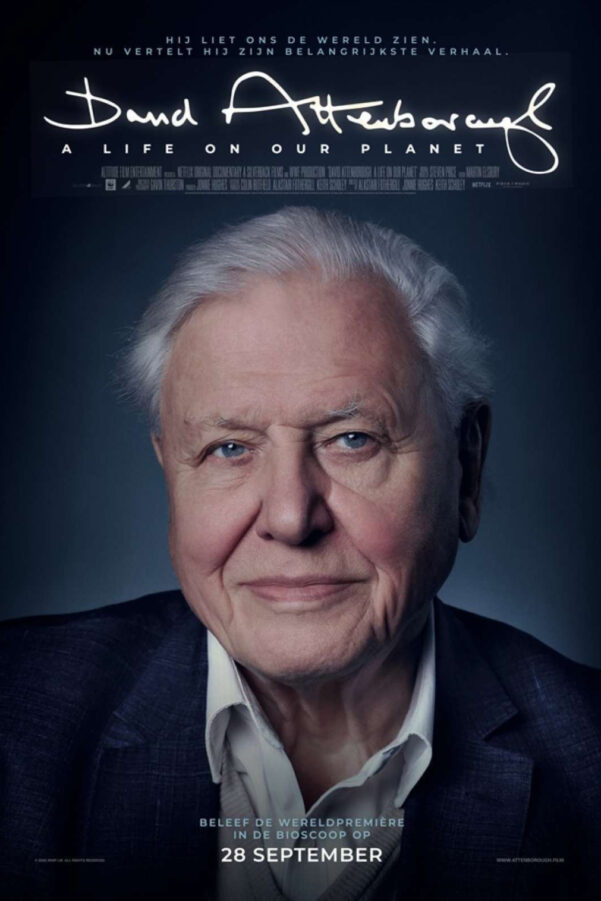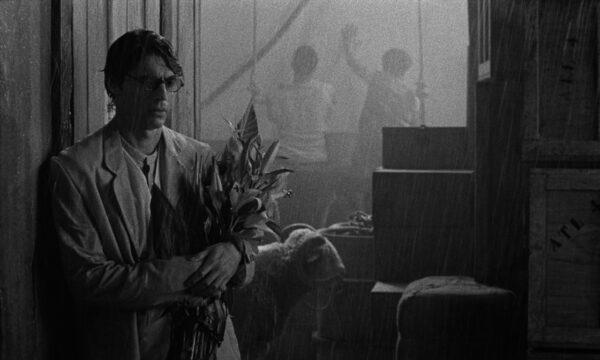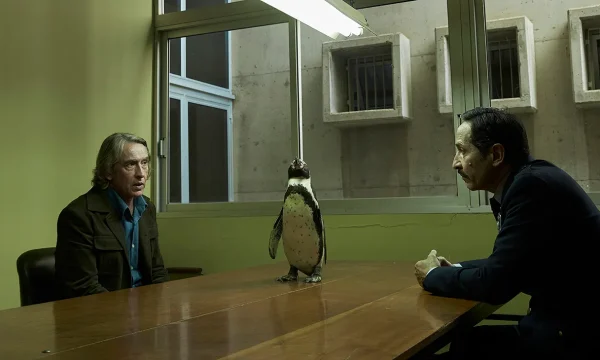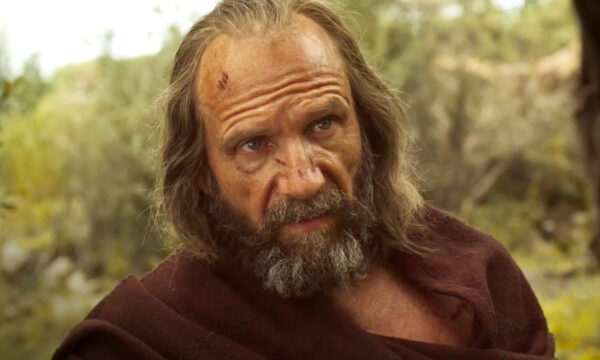David Attenborough: A Life on Our Planet

There’s a reason why David Attenborough has been voted the most trustworthy Briton and is regularly crowned one of the most beloved figures in our history. His shows on natural life have enriched the lives of generations, entertaining and informing the nation. While his programmes were always educational, they didn’t ask much of their audience. People trust Attenborough and, in turn, he generally plays the part of an impartial, inoffensive presenter of facts within the animal kingdom. This has changed, partly because the reality Attenborough presents and reports on is changing (or, at least, our understanding of it is developing), and there is no way to hide this fact other than by intentionally misleading or misreporting, something Attenborough is incapable of.
A Life on Our Planet is Attenborough’s “witness statement”, as he puts it. The truths are undeniable, and the urgency of his message points towards the gravity of the environmental situation we all find ourselves in. Previously, Attenborough acknowledged the reality of climate change but opted not to spend too long examining its devastating impact. In this movie, he realises the finite but essential space available to animals in the 80s and is made aware of the cruelty of humanity’s greed for land soon after when he witnessed the plight of the orangutans in the name of palm oil production. However, this terrible human impact on the animal planet was only first seen after the turn of the century. By the time of Our Planet (2019) and Blue Planet II (2017), Attenborough was spending more and more time teaching viewers of this bleak reality and the perilous future we all face. Still, A Life on Our Planet is by some distance his most acerbic, alarming and essential production yet.
Interweaving his past experiences with the continued degradation of our natural planet, Attenborough warns of an impending “sixth mass extinction” (the fifth being the blast that killed off the dinosaurs). This feature is littered with stark warnings such as: “human beings have overrun the world”, and that “we haven’t just ruined” our natural environment, “we’ve destroyed it.”
But fearful of scaremongering, A Life on Our Planet invests a lot of time into what can be done to stop this near-irreversible trend of destruction. Attenborough sets store by forward-thinking, ambitious, yet simple strategies to counter the unsustainability of modern civilisation. Rewilding, education, renewable energy and plant-based diets are heralded as the path towards planetary redemption. Much like these proposals, Attenborough’s piece is simple in its explanatory method of informing and warning viewers. It’s ambitious, hopeful and necessarily shocking and powerful. A Life on Our Planet may not have the kaleidoscope of colour and awe-inspiring beauty of the nature presenter’s previous documentaries, but it is his most impactful and important film to date.
Jake Cudsi
David Attenborough: A Life on Our Planet is released nationwide on 28th September 2020.
Watch the trailer for David Attenborough: A Life on Our Planet here:

























Facebook
Twitter
Instagram
YouTube
RSS